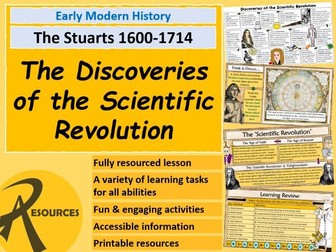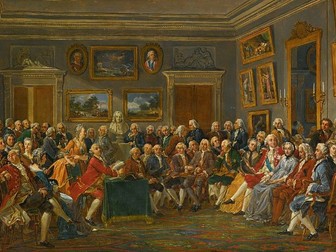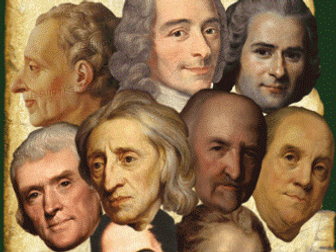Scientific Revolution & Enlightenment
<p>**In this lesson, students will learn about the many discoveries of the Scientific Revolution. Students will be able to define what historians mean by the term Scientific Revolution as well as the descriptions of the ‘Age of Faith’, the ‘Age of Reason’ and the ‘Enlightenment’. **</p>
<p>They will then study the various discoveries of the time and think about which of these discoveries was the most significant. The lesson will help students think about the idea of significance and guide students through the process of completing their own living graph diagram about the discoveries.</p>
<p>It will also then guide students through completing an extended piece of writing about the discoveries of the Scientific Revolution.</p>
<p>The lesson contains a variety of discussion tasks, warm up start activities, printable resources, and learning reviews as well as engaging background information and challenge questions for higher ability students. There is a choice of printable resources to suit different ages and abilities. The lesson is mainly aimed at KS3 students between the ages of 11-14 but can easily be adapted for younger or older students.</p>
<p>Please be kind enough to leave a review of this lesson if you have found it effective. Thank you.</p>
<p>All images used in this lesson are in the public domain and are therefore copyright free at the time of publishing. Images which require attribution have been attributed in the notes section of each slide where the image appears. If you feel any errors have been made, please contact me at <a href="mailto:raschoolresources@gmail.com" target="_blank" rel="nofollow">raschoolresources@gmail.com</a> in the first instance to resolve any issues. Thank you.</p>









